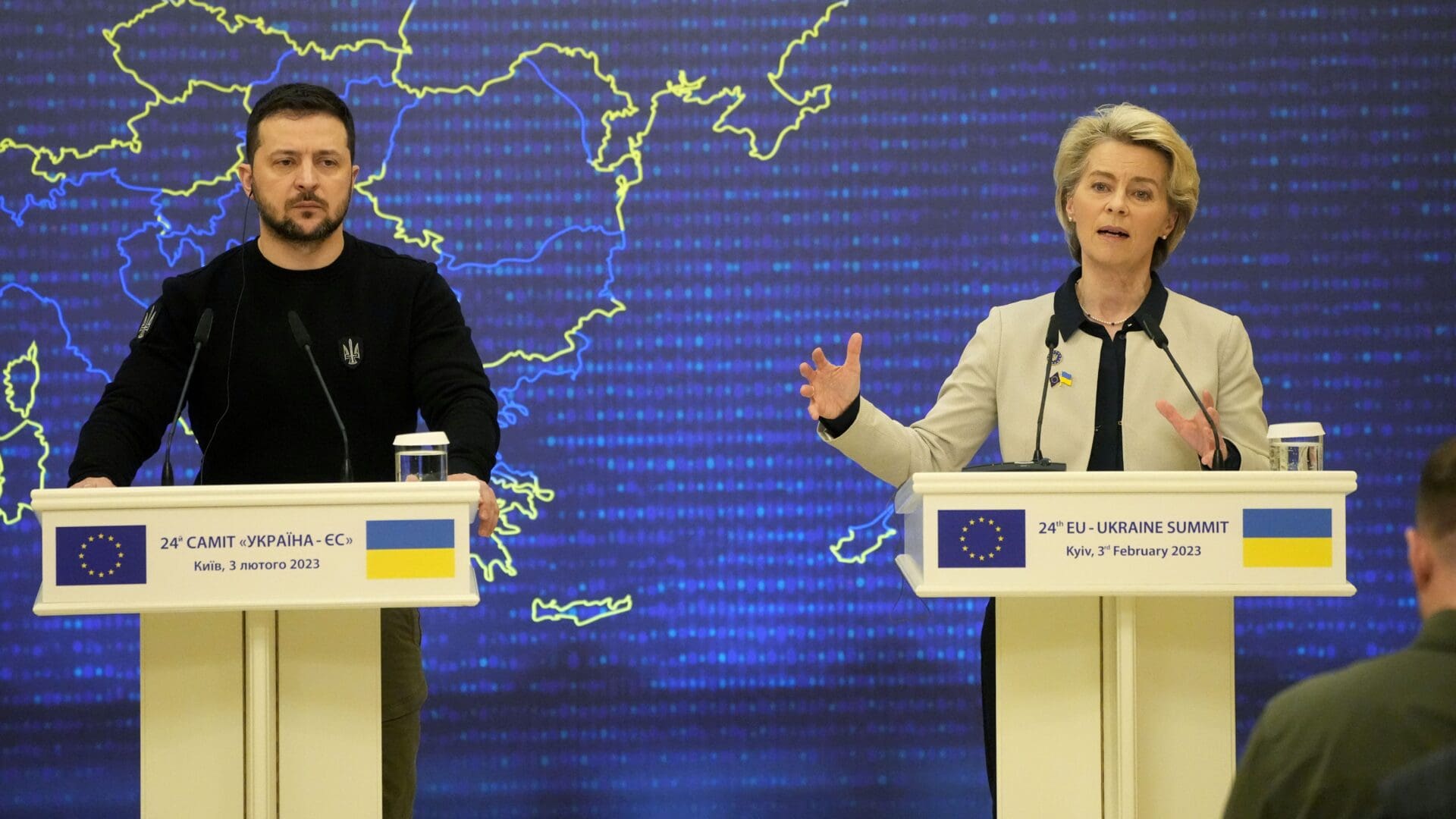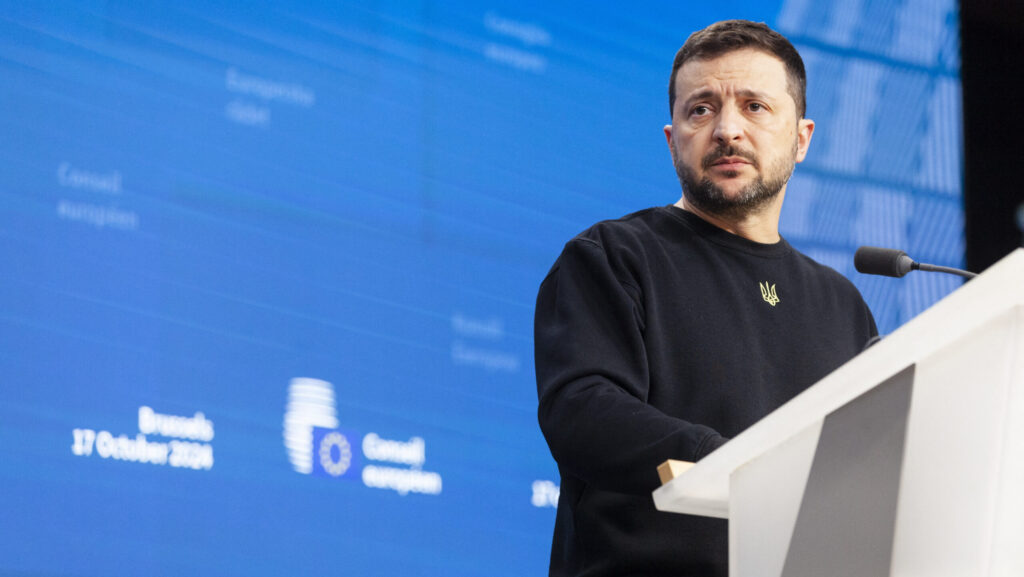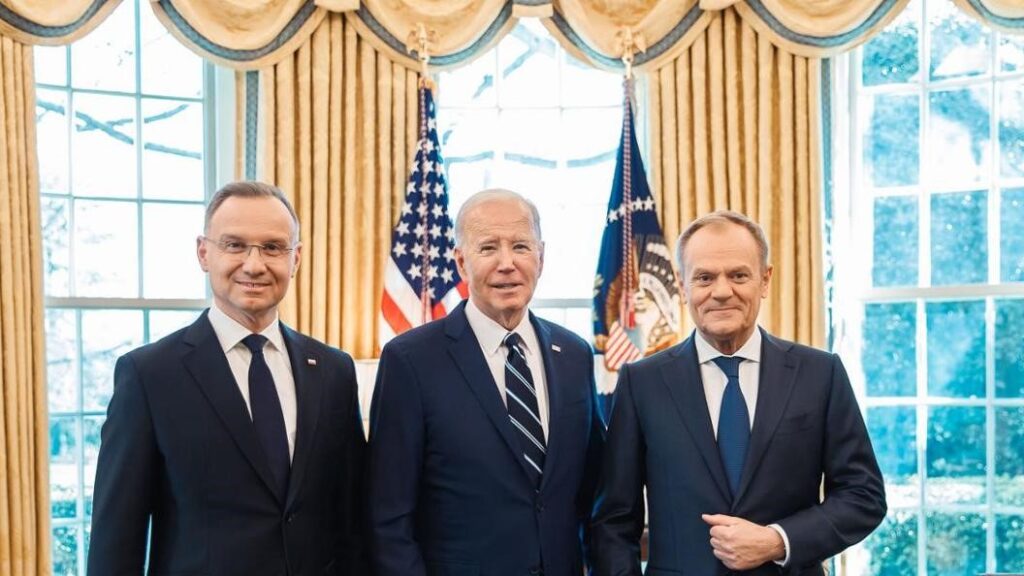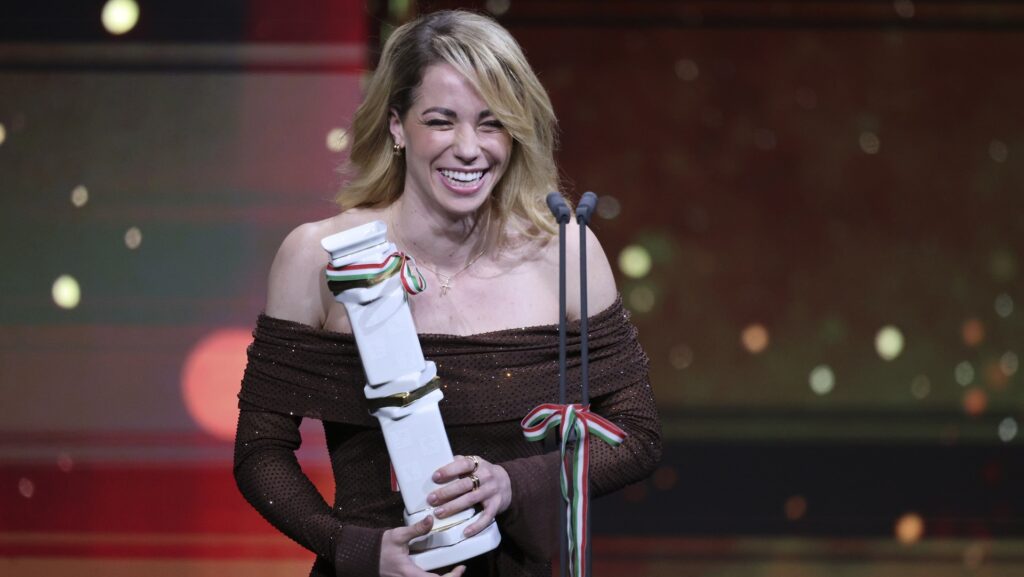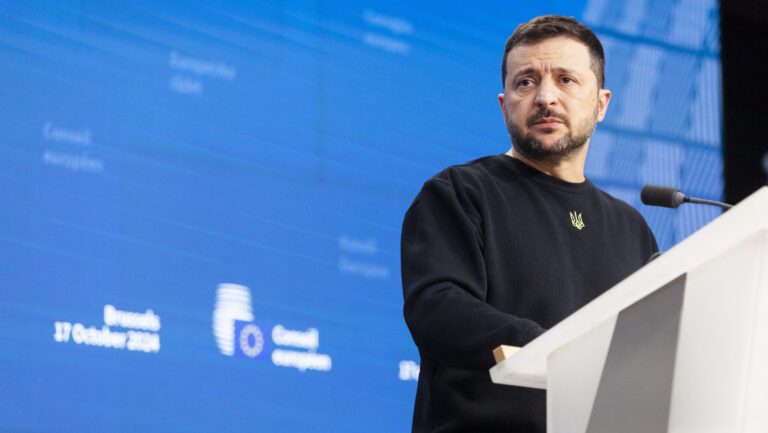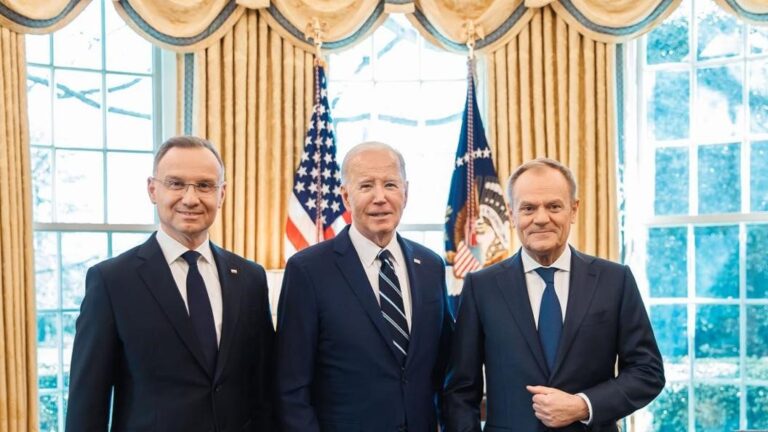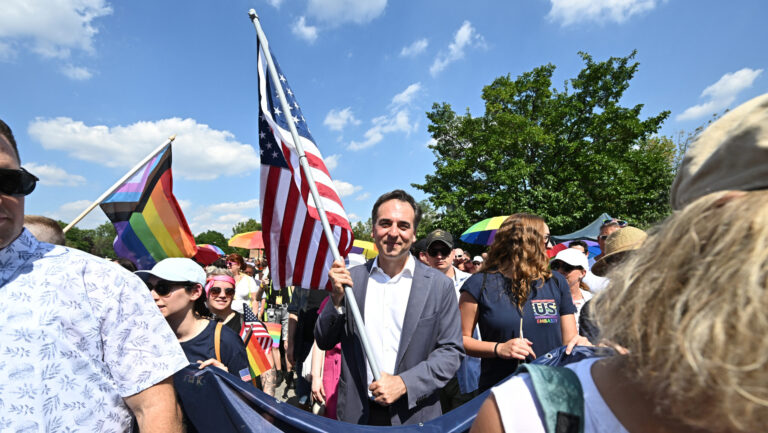Ukrainian Prime Minister Denys Shmyhal has recently announced that Ukraine is looking to join the EU in two years. On Friday, President Volodymyr Zelenskyy and the leaders of the European Commission and Council met at the EU–Ukraine summit in Kyiv to set more realistic expectations.
Ambitious Plans
Last week, Shmyhal said he was aiming for a strict deadline. He told POLITICO: ‘We have a very ambitious plan to join the European Union within the next two years’. According to the PM, his country ‘can already start the pre-entry stage of negotiations this year, in 2023.’ This stance poses a challenge to the EU establishment, to say the least, as the community is attempting to maintain Ukrainian membership as a much further-off possibility.
French President Emmanuel Macron stated last year that it could take decades for Ukraine to join. Even the EU’s top officials, who supported giving Ukraine candidate status at their summit last June, privately acknowledge that the possibility of the nation really joining the Union is still quite a few years away. After all, candidate nations including Serbia, Turkey, and Montenegro have been kept waiting for years (Turkey, for instance, has been a candidate since 1999).
The Ukraine question divides the EU. Many contend that Brussels has a special duty to Kyiv. Ultimately, the Maidan revolt of 2014 and the subsequent war were brought on by the Ukrainians’ rage at President Viktor Yanukovych’s decision to renege on a political and economic association deal with the EU at Russia’s urging. Ukraine is ‘the only country where people have been shot because they wrapped themselves in a European flag,’ President of the European Commission Ursula von der Leyen reminded at a plenary session of the European Parliament in November 2022.
Poland and the Baltic nations, which are close allies of Ukraine in the EU, vehemently back Kyiv’s bid for membership,
arguing that it is a democracy fending off an aggressor. However, many in the EU’s old guard are far more cautious, also because they perceive Ukraine as possibly eroding their own privileges and advantages. With a combined population of 80 million people, Ukraine and Poland may join forces to challenge Germany as a political force in the European Council, for instance.
Some also claim that Kyiv would place an undue financial burden on the EU. While EU officials agree that the future of Ukraine belongs within the European Union, they also believe aspirant nations need to meet certain requirements. ‘In Kyiv, expectations are extremely high, but there is a need to meet all the criteria that the Commission has outlined. The process is merit-based,’ according to a senior EU official.
Corruption in Focus
The fight against corruption in Ukraine was a hot topic at the meeting and a major uncertainty about its EU membership. This month’s controversies involving war profiteering in government contracts led to the resignation of the deputy minister of infrastructure and the dismissal of the deputy minister of international affairs. One senior EU official involved in summit preparations remarked, ‘We need a reformed Ukraine. Ukraine cannot be the same as it was prior to the war.’ The administration, according to Shmyhal, takes corruption very seriously. In reference to the ‘lightning speed’ with which officials were fired this month, he asserted, ‘We have a zero-tolerance approach.’ He explicitly stated that the fight against white-collar crime within the government is essential to the nation’s route towards EU membership: ‘Unfortunately, corruption did not start yesterday, but we are confident that we will uproot it.’
In order to satisfy the requests of both the European Commission and the Venice Commission, an advisory body of the Council of Europe, the Ukrainian PM stated that the administration was prepared to amend recent legislation regarding the nation’s Constitutional Court. Changes can happen as soon as this week, according to Shmyhal. The Venice Commission continues to have reservations regarding the authority and make-up of the advisory group of experts, the body that chooses candidates for the Constitutional Court. These concerns are notwithstanding Ukraine’s recent announcement of reform, particularly with regard to how judges are selected. Avoiding political involvement is the main objective.
President of the European Council Charles Michel used his unexpected trip to Kyiv this month to reassure Ukraine that it will one day become a member of the EU.
He told the Rada (the Supreme Council of Ukraine) that he hopes to be replaced as president of the European Council by a Ukrainian sometime in the future. He declared, ‘Ukraine is the EU, and the EU is Ukraine. We must exert every effort to make good on this promise as soon as we can.’
Zelenskyy Urged All EU Leaders to Support Ukraine
The Zaporizhzhia nuclear reactor is currently run by Russia’s nuclear energy firm Rosatom. At the EU-Ukraine Summit, Ukrainian President Volodymyr Zelenskyy chastised EU member states who are resisting sanctions and urged them to intensify their targeted action against Rosatom’s top executives.
At the conclusion of the summit, Zelenskyy said, ‘We still need the support of all of the EU leaders,’ implying that some European nations are holding off on imposing sanctions on Russia, which he finds particularly egregious in light of the crimes committed at the Russian-occupied Zaporizhzhia plant in southeast Ukraine. He called out nations who still refuse to implement sanctions against the senior executives of Rosatom, alleging that Russia had kidnapped Ukrainian nuclear scientists and plant managers and sent their children to Russia. He went on to say that there must be consequences for such ‘forced deportation’.
Privately, EU officials apparently expressed satisfaction that people are being targeted rather than nuclear fuel, which they claim is of very little economic value to Russia. Additionally, Zelenskyy claimed that his government was examining the parts of drones and missiles to determine which parts were being supplied to Russia.
Zelenskyy also called out non-EU nations that could be evading sanctions and supporting the Russian conflict,
without specifically citing Iran or any other nations.
He stated: ‘I am offended by the behaviour of the nations that are our allies yet are financially supporting Russia in this conflict.’ In a private meeting held on Friday between Zelenskyy and the presidents of the European Commission and Council, the topic of sanctions came up again. The discussion was delayed by around 40 minutes because of an air raid siren that prompted participants to take cover in an underground bunker. According to Von der Leyen, the tenth sanctions package, which is estimated to have a volume of around €10 billion, will be approved by 24 February—the first anniversary of Russia’s invasion of Ukraine.
Michel added: ‘We must do more, and we will do more.’ He highlighted that the European Council had reached unanimity on nine sanction packages. President Zelenskyy referred to those who had perished as heroes when discussing the situation in Bakhmut, where Ukrainians are reportedly suffering significant losses. He declared that speedier weapon supply will make a difference, and not just there.

